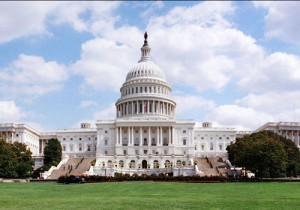Government Contractor Defense Victory in California
By James Scadden, Oakland on December 2, 2016
A recent California decision describes a set of facts in which the government contractor defense can be successfully applied. Such circumstances have been few and far between.
In Kase v. Metalclad Insulation Corp., the appeal was from an order by San Francisco’s soon-to-be Presiding Judge Teri Jackson granting summary judgment to defendant.
 Mr. Kase claimed exposure to asbestos-containing insulation products while working on US Navy nuclear submarines in the 1970’s. The court pointed out that unlike other defendants who have in the past unsuccessfully attempted to assert the defense, Metalclad did not design or produce a piece of hardware or equipment. Instead, Metalclad was a broker of Unibestos. The court finds the government contractor defense was properly asserted for Metalclad while simultaneously acknowledging other decisions that have denied its application for equipment manufacturers. We are left with the predicament wherein a broker who distributes Unibestos can assert the government contractor defense, whereas an equipment manufacturer who has its products insulated with Unibestos cannot. The court notes that the record demonstrated that the Unibestos product at issue was never in the possession of Metalclad. Instead, Metalclad had only arranged for its delivery to the shipyard.
Mr. Kase claimed exposure to asbestos-containing insulation products while working on US Navy nuclear submarines in the 1970’s. The court pointed out that unlike other defendants who have in the past unsuccessfully attempted to assert the defense, Metalclad did not design or produce a piece of hardware or equipment. Instead, Metalclad was a broker of Unibestos. The court finds the government contractor defense was properly asserted for Metalclad while simultaneously acknowledging other decisions that have denied its application for equipment manufacturers. We are left with the predicament wherein a broker who distributes Unibestos can assert the government contractor defense, whereas an equipment manufacturer who has its products insulated with Unibestos cannot. The court notes that the record demonstrated that the Unibestos product at issue was never in the possession of Metalclad. Instead, Metalclad had only arranged for its delivery to the shipyard.
The opinion is lengthy, 28 pages, and includes several points benefitting potential government contractor defendants, including:
- There is no “off the shelf” limitation to the application of the defense.
- Products “incidentally sold commercially” may still qualify as military equipment.
- Insulation specifications required, first explicitly and later impliedly, the use of asbestos. The court ruled that that if only asbestos will fulfill the performance requirements, then it is not necessary that the government specifications explicitly use the word asbestos. “Performance requirements can mandate a design choice, and the uncontroverted evidence is that it did so in this case.”
- There was no duty to warn as the Navy “was well aware of the potential hazards of asbestos.”
- Similarly, although this case did not involve “back and forth” negotiations characteristic of other successful government contractor defenses, that not necessary. “We recognize this is not a case involving substantial “back and forth” between a government agency and a contractor designing a unique piece of equipment, such as an aircraft or transport vehicle. [Citations omitted] No case involving that scenario, however, has involved the decades of naval studies and investigations, and the history of naval specifications, unique to the universe of asbestos cases.”
- Unibestos had asbestos warnings on its insulation products not later than 1968.
While this decision is certainly good news for Metalclad and other similarly situated defendants, other courts may limit it to the specific facts of this case. It seems odd that a company that arranges for the delivery of boxes of Unibestos to the shipyard is protected from liability, while the company that ships its pumps to the same shipyard with comparatively miniscule rings of asbestos containing packing inside their pumps nevertheless is frequently denied the same defense. Perhaps arguing this inconsistency will gain some traction for government contractor equipment manufacturers in the future.
